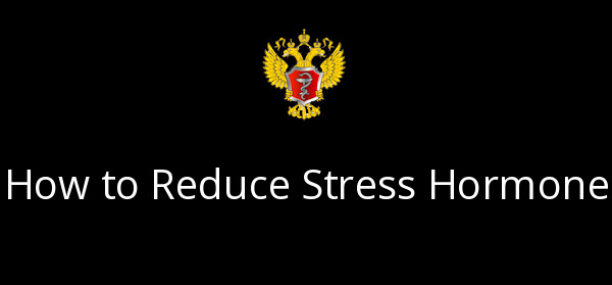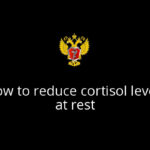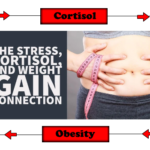By creating a comprehensive manual on reducing stress hormones and organizing this manual into sections and providing actionable tips and recommendations within each category, individuals can have a comprehensive resource to help them effectively manage and reduce stress hormones in their daily lives. Additionally, emphasizing the importance of individualized approaches and consulting with healthcare professionals for personalized recommendations ensures that individuals receive appropriate support tailored to their unique needs and circumstances.
Here are some of the key sections and action-options to help individuals effectively manage and reduce stress hormones in their daily lives:
Lifestyle Modifications:
Stress Management Techniques: Deep breathing exercises, meditation, mindfulness practices, progressive muscle relaxation, yoga, tai chi, and qigong.
Physical Activity: Regular exercise, such as walking, jogging, swimming, cycling, or dancing, to help reduce stress hormones and promote relaxation.
Time Management: Effective time management strategies to prioritize tasks, set realistic goals, and reduce feelings of overwhelm.
Social Support: Building and maintaining strong social connections with friends, family, and support networks to provide emotional support and reduce stress.
Relaxation Techniques: Incorporating activities that promote relaxation, such as listening to calming music, taking warm baths, practicing aromatherapy, or spending time in nature.
Dietary Modifications:
Balanced Diet: Eating a well-balanced diet rich in fruits, vegetables, whole grains, lean proteins, and healthy fats to support overall health and reduce stress.
Stress-Reducing Foods: Incorporating foods that are known to have calming effects or support the nervous system, such as foods high in magnesium (e.g., dark leafy greens, nuts, seeds), B vitamins (e.g., whole grains, legumes, dairy products), and omega-3 fatty acids (e.g., fatty fish, flaxseeds, chia seeds).
Herbal Teas: Enjoying herbal teas known for their calming properties, such as chamomile tea, green tea, peppermint tea, lemon balm tea, or passionflower tea.
Hydration: Staying well-hydrated by drinking plenty of water throughout the day to support overall health and reduce stress.
Supplements and Herbal Remedies:
Supplements: Considering the use of supplements known to support stress reduction and promote relaxation, such as magnesium supplements, vitamin B complex, omega-3 fatty acids, and adaptogenic herbs like ashwagandha or rhodiola.
Herbal Remedies: Exploring the use of herbal remedies known for their calming effects, such as valerian root, lavender, passionflower, or kava kava. It’s essential to consult with a healthcare professional before starting any new supplements or herbal remedies, especially if you have underlying health conditions or are taking medications.
Medications and Professional Support:
Prescription Medications:
Discussing the option of prescription medications with a healthcare provider for managing severe or chronic stress, anxiety, or depression. These may include antidepressants, anxiolytics, or other medications prescribed on a case-by-case basis.
- Antidepressants: Medications like Prozac (fluoxetine) may be prescribed to help regulate mood and reduce symptoms of depression or anxiety. The lowest effective dose should be used, typically not exceeding one pill per day.
- Anxiolytics: Medications such as Lexotanil (bromazepam) may be prescribed for short-term relief of anxiety symptoms. The lowest effective dose should be used, typically not exceeding one pill per day.
Analgesics for Symptomatic Relief: Strong analgesics like Ketanov (ketorolac) may be used for symptomatic management of pain associated with stress-related conditions. The lowest effective dose should be used, typically not exceeding one pill per day for short-term use. It’s important to use these medications under the guidance of a healthcare provider and to be aware of potential side effects and risks associated with long-term use.
By emphasizing the use of the lowest effective doses and limiting the frequency of use, individuals can minimize potential risks and side effects associated with prescription medications while still benefiting from symptomatic relief when needed. It’s essential to consult with a healthcare professional before starting any new medications and to follow their recommendations closely for safe and effective management of stress-related symptoms
Counseling and Therapy: Seeking professional support from a licensed therapist or counselor to explore underlying causes of stress, develop coping strategies, and learn effective stress management techniques.
Medical Evaluation: Undergoing a thorough medical evaluation to identify and address any underlying medical conditions that may contribute to stress or exacerbate symptoms, such as hormonal imbalances, thyroid disorders, or chronic health conditions.
Addressing Underlying Conditions:
Identifying and addressing underlying health conditions that may worsen stress levels, such as hormonal imbalances, nutritional deficiencies (e.g., vitamin D deficiency, iron deficiency anemia), sleep disturbances, chronic pain, or gastrointestinal issues.
Seeking medical evaluation and treatment for any underlying conditions to optimize overall health and well-being and reduce stress levels
Verified by: Dr.Diab (March 29, 2024)
Citation: Dr.Diab. (March 29, 2024). How to Reduce Stress Hormone. Medcoi Journal of Medicine, 3(2). urn:medcoi:article22584.














There are no comments yet
Or use one of these social networks